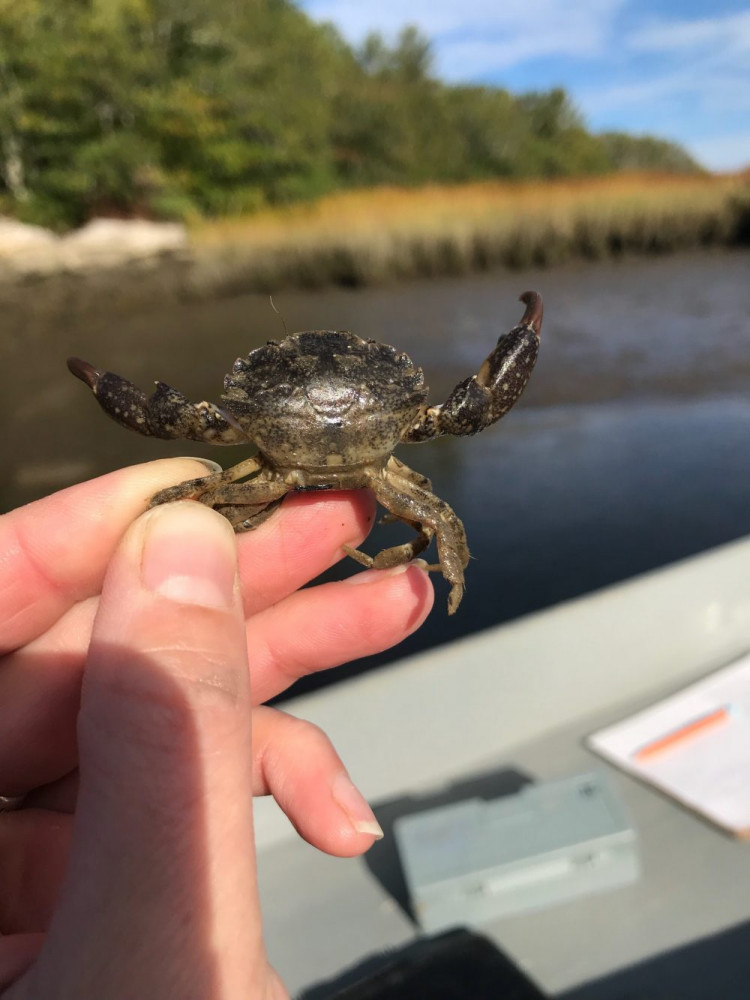A scientist with an environmental group says she has found what she believes is the first recorded appearance of a potentially damaging species of crab in Maine waters.
Marissa McMahan of the Massachusetts-based group Manomet said she located the smooth mud crab this month on a research trip. The crabs are typically found south of Cape Cod, Massachusetts. They can pose problems for aquaculture businesses because they prey on young oysters — a species of high economic value that is grown in Maine.
McMahan collected the single specimen, and it’s still alive. She said it’s too early to know how the animal ended up in the New Meadows River in West Bath, but it’s important to monitor for more of them.
It’s possible the species could be moving north as waters warm, or this specimen could have simply hitched a ride on a boat and survived the journey, she said.
“With this particular crab, it makes sense that it would be one of these species that we’re seeing shifting further north,” McMahan said. “It likes warm water.”
The Maine Department of Marine Resources does not have any reports of the species showing up in the state, said Jeff Nichols, a spokesman for the department. No action about the species is planned on the state level at the moment.
Brian Beal, a professor of marine ecology at the University of Maine at Machias, said the small crab does not likely appear in high densities in the state.
“And that’s a good thing,” Beal said. “And like most invasive species, there isn’t a lot that we’re going to be able to do to control its populations.”
Other newly arriving species of crabs already pose a threat to Maine’s ecosystem. Acadia National Park officials said this fall that a molted shell of an Asian shore crab was found along the shore. It was among the first confirmed reports of the species in the area.
The state also has a longstanding problem with invasive green crabs, which have wreaked havoc on Maine’s once thriving softshell clam harvest.
Send questions/comments to the editors.



Comments are no longer available on this story